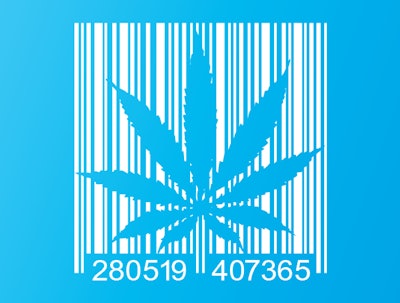
Burdensome regulations surrounding cannabis production, sale and use in various states have caused serious headaches for many cannabis entrepreneurs. The high levels of regulatory attention (from both state regulators and U.S. Drug Enforcement Administration officials) attached to the mandatory “seed-to-sale” tracking programs in states that legalized cannabis have not helped matters.
While crucial to compliance efforts, these mandatory systems significantly amplify the burden on cannabis businesses. Government regulators are watching the burgeoning commercial cannabis industry with eagle eyes. They want to know where every plant is grown, exactly when it is transported, where it is processed into extracts and edibles, and who purchases it from medical or recreational dispensaries.
Since cannabis remains a Schedule I narcotic, states continue to regulate it heavily in an effort to ensure that the federal government does not come crashing down on their programs, that products are not diverted into the black market and are kept away from children, and that prohibitionists have no window of opportunity to argue against the merits of legalized cannabis. In trying to achieve those goals, regulators sometimes miss the mark and create rules that make little sense. Look at California, where regulated retail cannabis is subject to track-and-trace laws, yet consumers can grow six plants at home without oversight and people who purchase retail cannabis can share it with others—once they exit the dispensary. It’s a conundrum: On one track, cannabis is treated like a dangerous controlled substance, with mandatory track and trace. On the other, people can grow it at home with relative freedom.
What’s Out There
Track-and-trace regulations are usually excessive and complicated to follow, in part due to the lack of well-functioning tracking systems. The state-regulated adult-use cannabis industry is barely five years old, and companies providing track-and-trace software for the industry are struggling to keep up with demand. A few companies are taking the lead at the retail level, providing increasingly productive point-of-sale (POS) systems for dispensaries. But each system comes with positives and negatives, as these systems are like toddlers still learning to walk in an industry that is already sprinting.
Treez, for example, partnered with a well-known California dispensary, Garden of Eden, to design software to suit the needs of its retail clients while meeting California’s track-and-trace program requirements. (Full disclosure: the two California dispensaries I operate, Magnolia Wellness and Hi Fidelity, both use Treez.)
Another example is Meadow’s POS system, which is built on the strengths of its CEO, David Hua. Hua was instrumental in bringing famed Silicon Valley incubator/seed accelerator Y Combinator into cannabis—Meadow was Y Combinator’s first cannabis-based startup.
Neither Meadow nor Treez are equipped to track the entire supply chain, though. Frankly, seed-to-sale tracking for cultivation, manufacturing and distribution is still in its infant stages. Some early systems seeing success include Trellis, funded by Snoop Dogg’s Casa Verde Capital, and Kudu Exchange, a new system taking a chunk of the California market. Several of the POS systems do incorporate some form of additional tracking, but the cannabis industry still has to patch together compliance, using separate tracking systems to meet the regulatory needs.
Cons of Current Tracking Systems
Then there’s Metrc—an actual seed-to-sale tracking system designed to feed all data into one system so states can track each seedling through its life cycle and at every step along the way until it is sold at a dispensary. Alaska, California, Colorado, Maryland, Michigan, Montana, Nevada, Ohio, Oregon and Washington, D.C., all use Metrc to track their state’s cannabis. Each individual POS or seed-to-sale tracking system used by cultivators, processors and dispensary owners in those states is required to drop data directly into Metrc. That said, California’s rollout of the Metrc system (which was scheduled for July 2018) has been delayed due to launch challenges.
Metrc uses an open application processing interface (API), which allows different software platforms to communicate in a common language. However, the system, like many comprehensive tracking systems, is complicated and requires that everyone in the supply chain use Metrc-supplied tracking labels for all plants and products as they make their way to consumers. This can create issues, as waiting to receive the proper labels can cause weeks of delays. Another problem is that existing tracking systems used by cultivators, retailers and manufacturers are not always compatible with Metrc. Simply put, the open API does not match, rendering the systems ineffective. Certainly this is not the fault of Metrc, as its competitors in the space, including BioTrackTHC and MJ Freeway, are under no obligation to assure their customer-facing POS systems match with a competitor’s.
As my buddy, a licensed cultivator near Las Vegas, told me, “I have [spent] hundreds of hours updating and creating transfers, ... adjusting entries and just fixing discrepancies.” He advises operators to designate one reliable employee to be the Metrc point person, advice that would seem to benefit operators dealing with any seed-to-sale tracking system. “You need someone to develop a relationship with a tech support person,” he says, so that you can reach someone directly in case of a problem and not have to wait for a response from customer service, which can take upwards of 72 hours.
Having recently attended California’s state-mandated Metrc training, I’m concerned about the burdens created by this new state-mandated system. This is marijuana after all, not heroin. By insisting on treating cannabis as a dangerous substance, and making states place such burdensome requirements on operators, the federal government encourages a long-lasting underground market—as many operators simply are not equipped to work with complicated compliance systems. In my opinion, states need to rethink the importance they place on seed-to-sale tracking, which only fuels the continuation of years of stigma around marijuana.
Cannabis should be regulated based on its potential to harm public health and safety, treating it similar to alcohol at worst. Alcohol is not tracked from seed to sale; why should cannabis be? While states obviously must walk a delicate line between establishing their own laws that run counter to federal law, seed-to-sale tracking alone is not the answer.


























